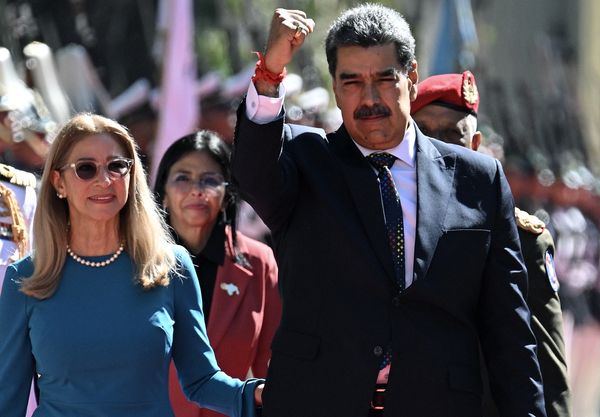
Been there, done that. Ray Mallock had won the Formula Atlantic championship in Britain in 1979 when the category was reintroduced to the country after a two-year hiatus. He’d then competed in the Aurora British Formula 1 Championship in 1980 at the wheel of Surtees – before a huge shunt at Thruxton caused by a car failure – and Wolf machinery. But for 1981, there was good reason to return to Atlantic to attempt to win a second crown.
“There was this thing that Bernie Ecclestone [then the owner of the Brabham F1 team and head of the FOCA teams group] was supporting,” recalls Mallock. “The prize for that was an F1 test drive…”
At the wheel of the Ralt RT4, the new ground-effect version of the all-conquering Formula 3 RT3, Mallock dominated the championship against variable opposition. Little wonder, because he’d already proved himself on the international stage – including a giantkilling second place in the 1977 Silverstone round of the European Formula 2 Championship behind Rene Arnoux.
“I won the championship and called Bernie at the end of the year,” continues Mallock, "and he said, ‘Yeah, we’ve got quite a few tests coming up, and we’ll get you in the car'. I said, ‘Well, next week I’m due to go off to do the Asia-Pacific championship – three rounds in Australia, Macau and Malaysia – but I can come back in between and test. And Bernie said, ‘No, you don’t need to come back, just get your races out of the way and give me a call as soon as you’re back.’”
As the British champion, Mallock had been invited out to those flyaway races. He claimed a brake-troubled seventh in the Australian GP at Calder, in which Alan Jones drove his last single-seater race before his first retirement from the cockpit but exited late on when his engine lost power. Jacques Laffite also took part, naturally with a Gitanes-liveried RT4.
Mallock then went on to claim third in a highly attritional Macau GP, keeping things consistent but struggling for pace against those on quicker tyres. And the adventure finished with retirement from the Selangor GP with a blown engine. It was all a far cry from cruising to victory by 20 seconds at Mallory Park. After he got home, he got back on the blower to Bernie…

Mallock recalls: “And the answer was, ‘Oh, it’s a shame, there was a test at Paul Ricard last week which would have been perfect. Give me a call in a couple of weeks and this will work out.’ So I did that, and there was nothing then going on. By the time it got to Christmas, I called Bernie and he said, ‘Well, you made your decision that you wanted to go and do your Formula Atlantic races, so you’ve lost your chance to do your F1 test drive.’
“In actual fact it probably did me a favour, because that timescale coincided with the coming of Group C, and Aston Martin announced that they were coming in with the Nimrod. I knew a lot of people still at Astons, so I was able to get myself involved with the Nimrod programme.
“I was always too tall for F1. I was driving pretty well I think, by my reckoning, I had that driving ambition to be in F1, but Group C ended up being a great path for me. I loved Le Mans, I loved those cars, and it really opened up the opportunity for RML.”
"Thank heavens we didn’t get drawn into it, because it would have not ended well I don’t think. It was a real interest, and it could have happened if the cost cap had come about"
Ray Mallock
Mallock’s RML company went – and continues to go – from strength to strength, winning a world Group C2 title and multiple touring car crowns.
PLUS: How a standard bearer of BTCC’s golden era replicated Vauxhall glory with Nissan
One of the manufacturers with which RML enjoyed huge success in tin-tops was Chevrolet, with which it claimed World Touring Car Championship crowns with Yvan Muller and Rob Huff, and it is this marque that could have taken Mallock into F1 as a team owner in 2010 under the projected new cost-cap rules, three decades after his Brabham run fell through. FIA president Max Mosley was pushing the cost cap proposal, and he was a former customer of Mallock’s father Arthur in his own racing days.
“That came about because of one of my many discussions with Nick Reilly [Chevrolet Europe boss] about Chevrolet in motorsport,” recalls Mallock. “When Max announced this idea of the price cap, within reach of Chevrolet, I talked to Nick about it and he said, ‘Well yeah, that sounds interesting if we can find a way of entering at that level, without having to spend 200 million or whatever, and it can be an objectively managed process, let’s throw our hat in the ring.’
PLUS: RML at 40 - The rise of a motorsport giant
“So that’s what I did. But quite quickly the goalposts moved – there was no way it was ever going to stay at £40m. It quickly fizzled out and thank heavens we didn’t get drawn into it, because it would have not ended well I don’t think. It was a real interest, and it could have happened if the cost cap had come about.”
But the ironic twist of Ray Mallock in F1? Second in that 1981 Australian GP, behind his pal Roberto Moreno, was Ecclestone’s newly crowned world champion Nelson Piquet…








